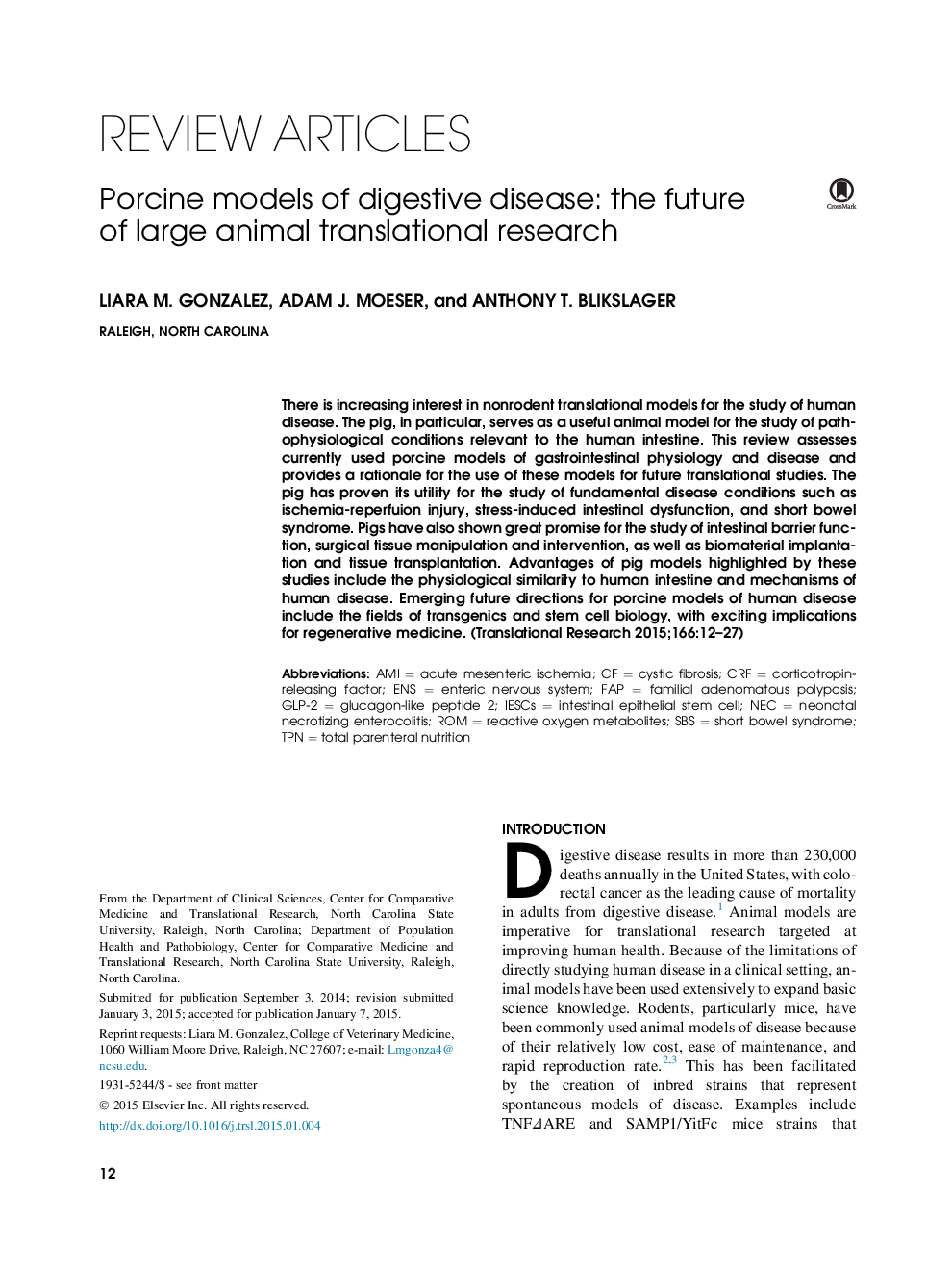| کد مقاله | کد نشریه | سال انتشار | مقاله انگلیسی | نسخه تمام متن |
|---|---|---|---|---|
| 3840193 | 1247897 | 2015 | 16 صفحه PDF | دانلود رایگان |
There is increasing interest in nonrodent translational models for the study of human disease. The pig, in particular, serves as a useful animal model for the study of pathophysiological conditions relevant to the human intestine. This review assesses currently used porcine models of gastrointestinal physiology and disease and provides a rationale for the use of these models for future translational studies. The pig has proven its utility for the study of fundamental disease conditions such as ischemia-reperfuion injury, stress-induced intestinal dysfunction, and short bowel syndrome. Pigs have also shown great promise for the study of intestinal barrier function, surgical tissue manipulation and intervention, as well as biomaterial implantation and tissue transplantation. Advantages of pig models highlighted by these studies include the physiological similarity to human intestine and mechanisms of human disease. Emerging future directions for porcine models of human disease include the fields of transgenics and stem cell biology, with exciting implications for regenerative medicine.
Journal: Translational Research - Volume 166, Issue 1, July 2015, Pages 12–27
